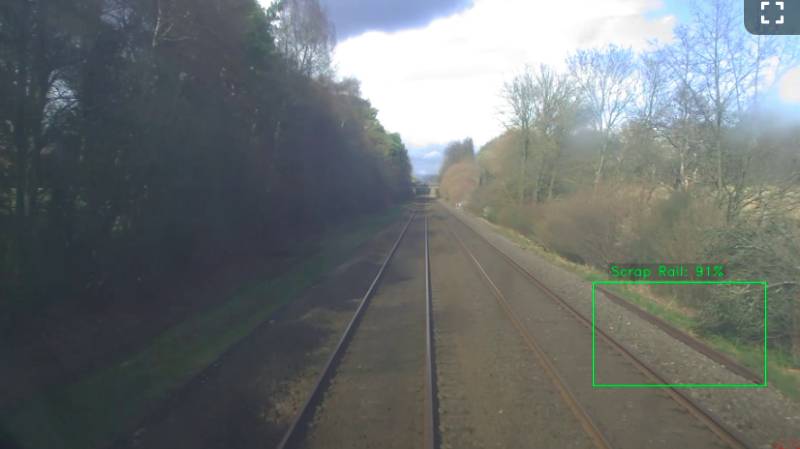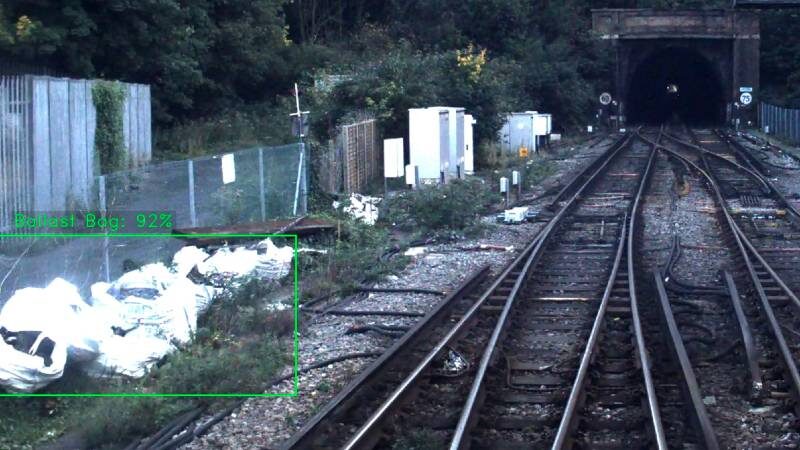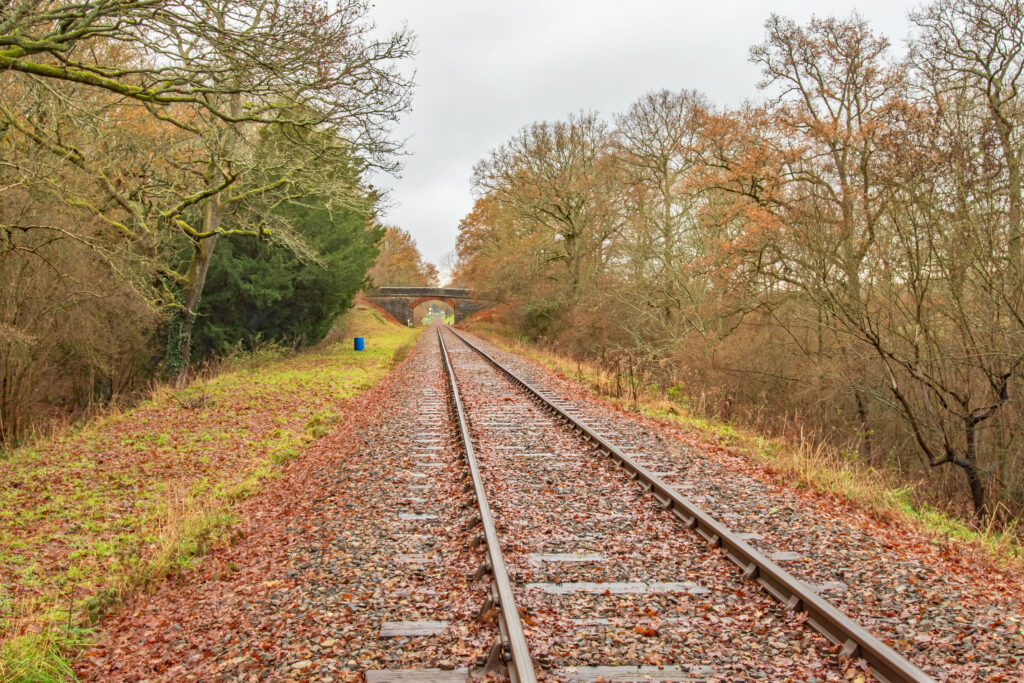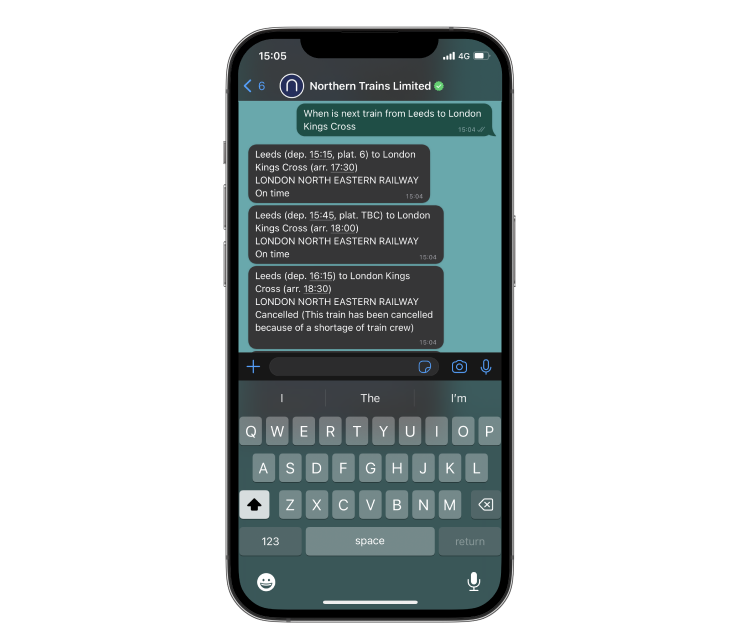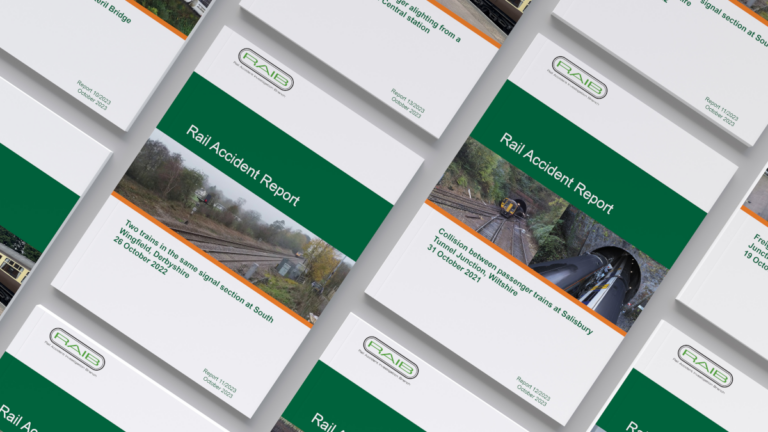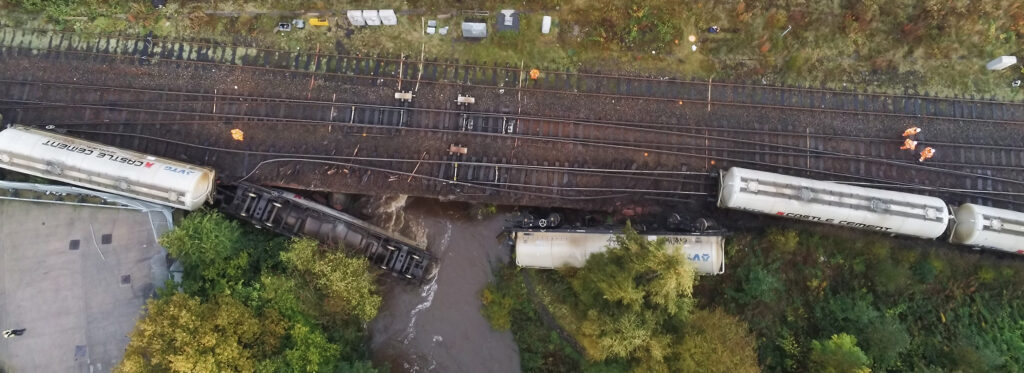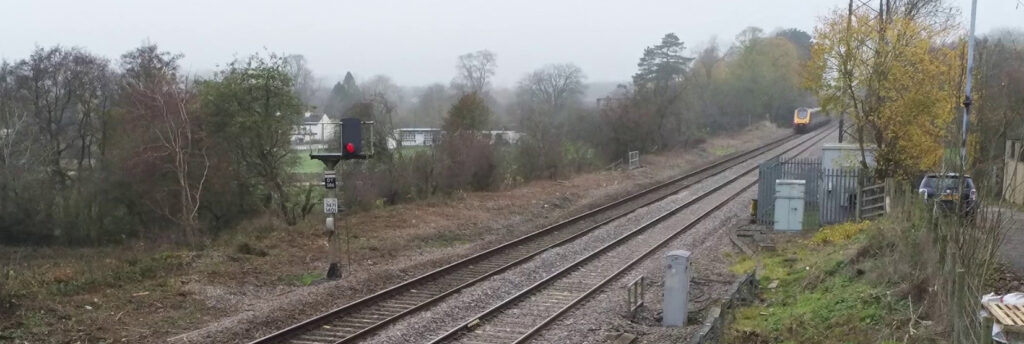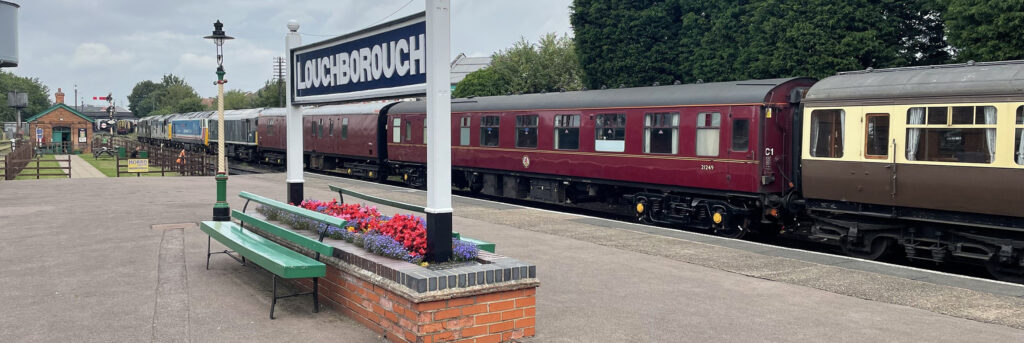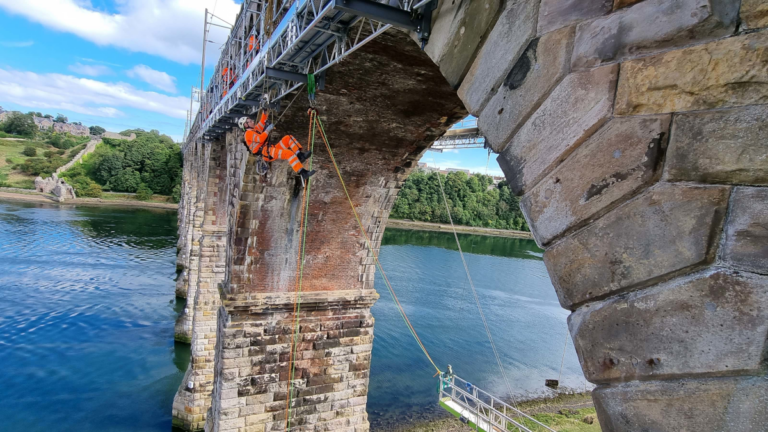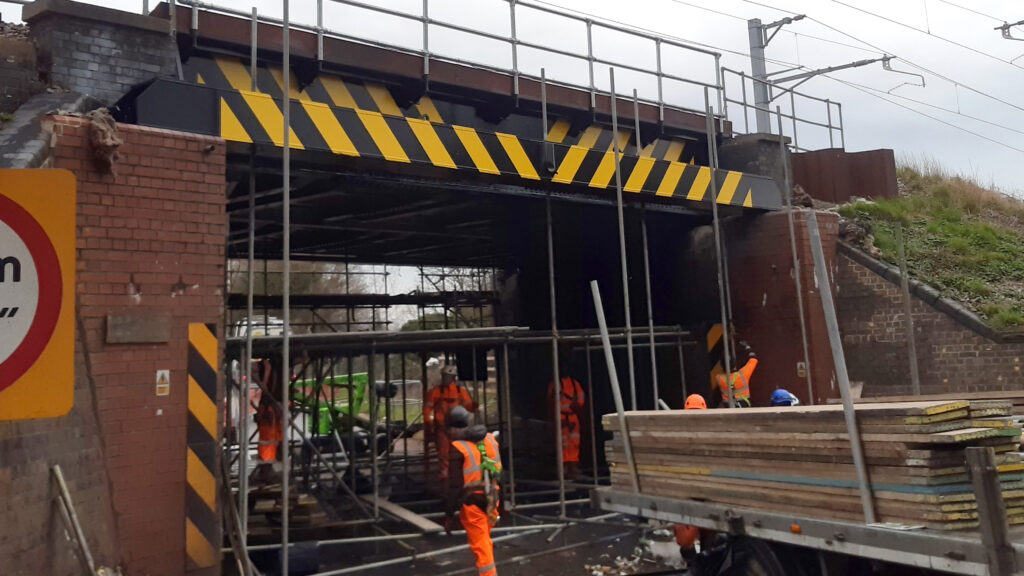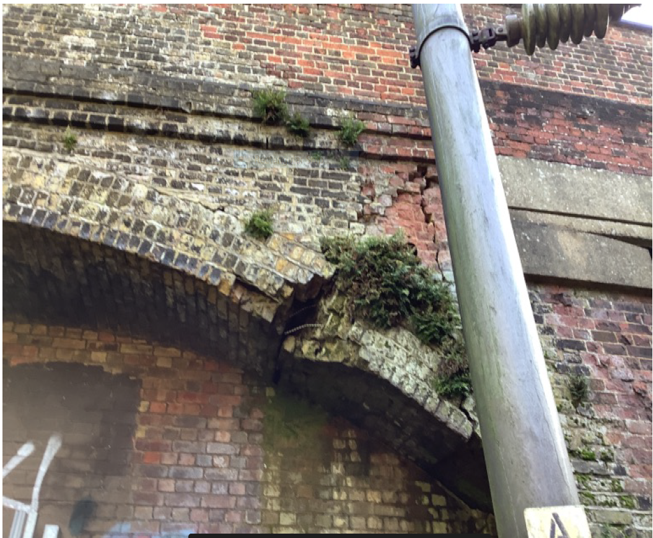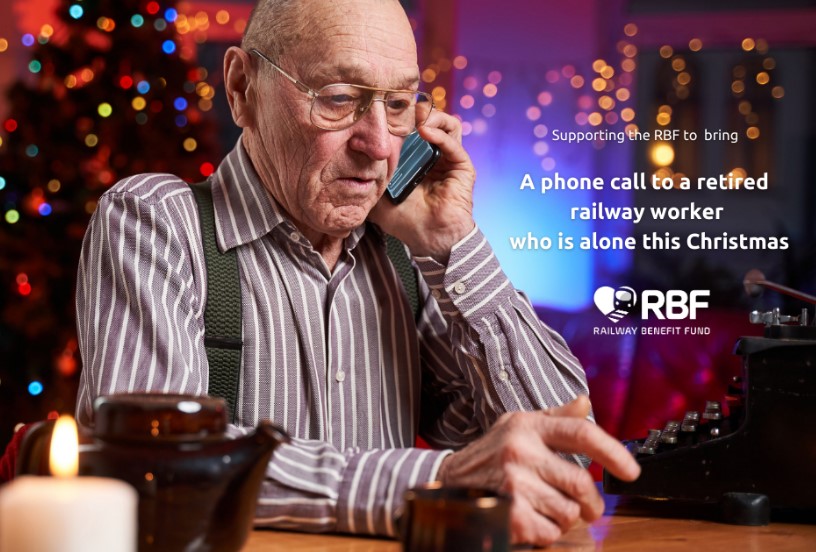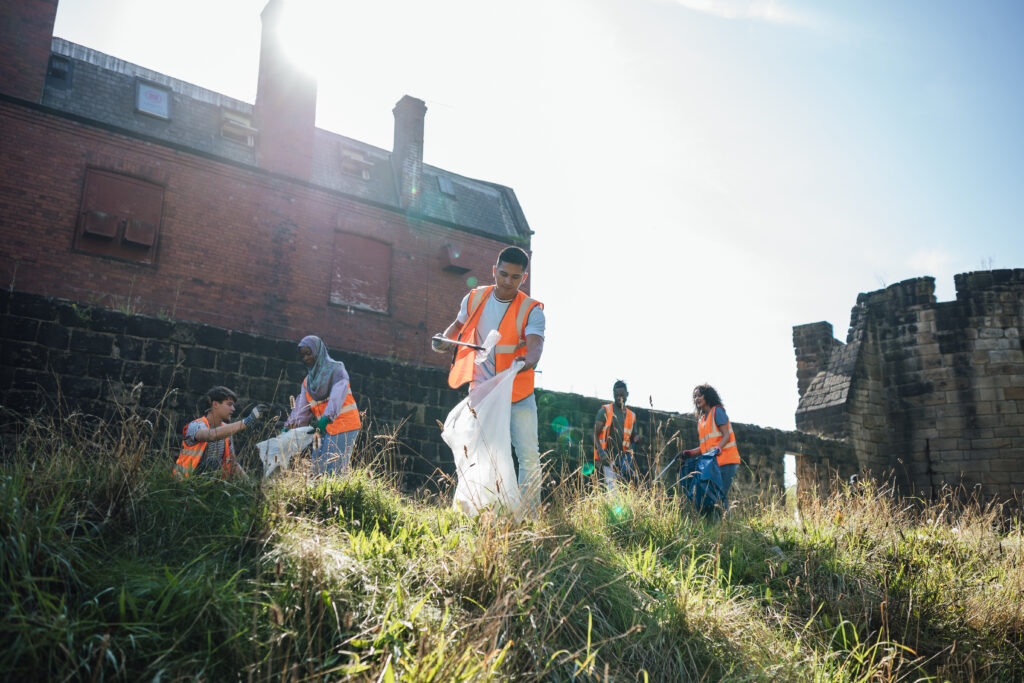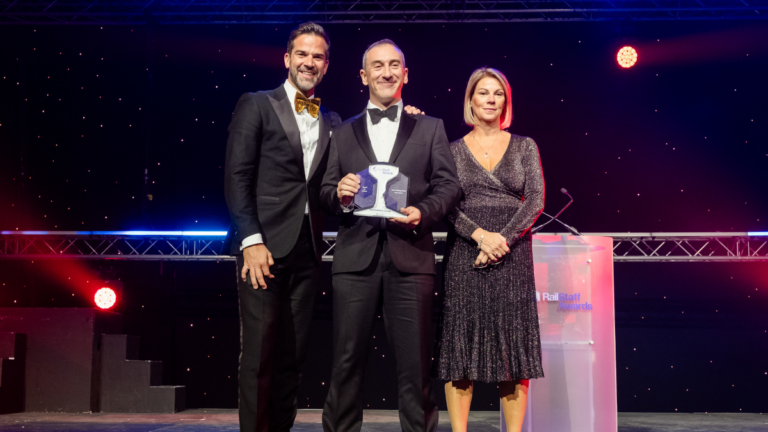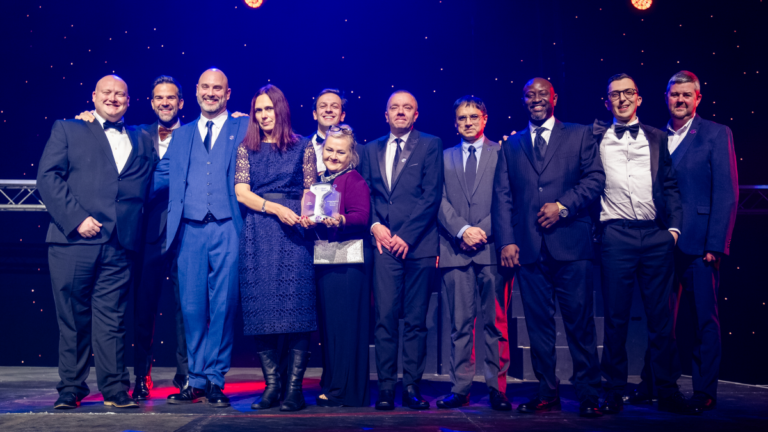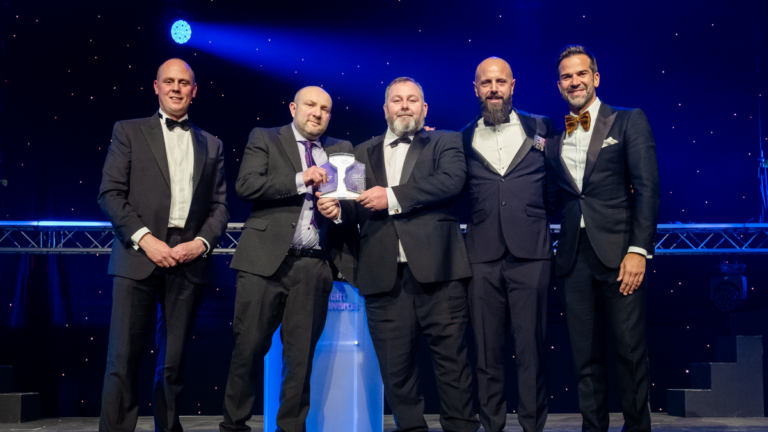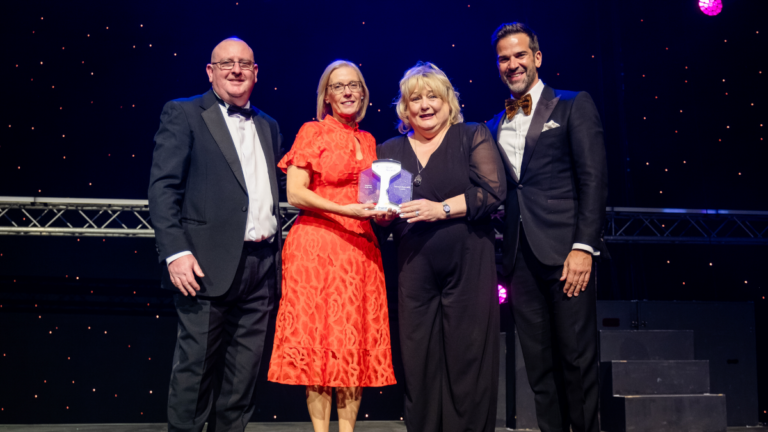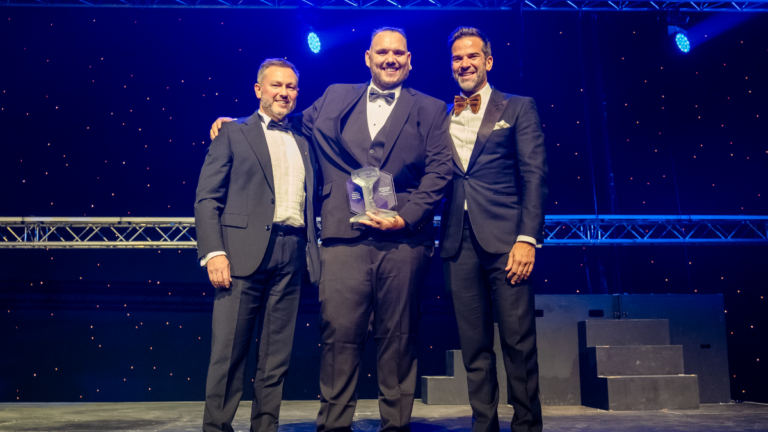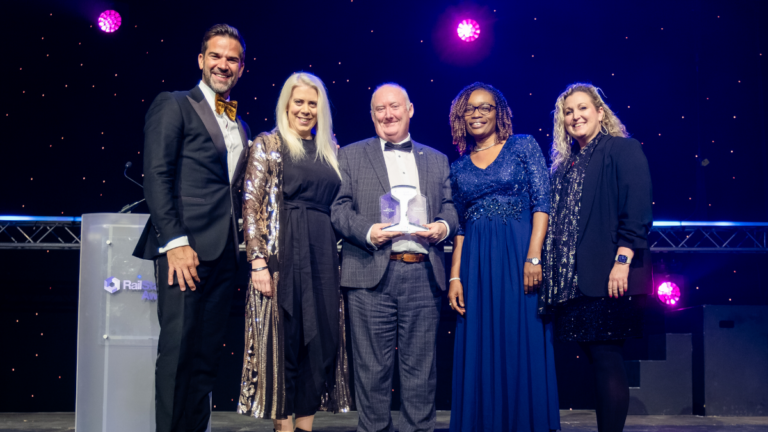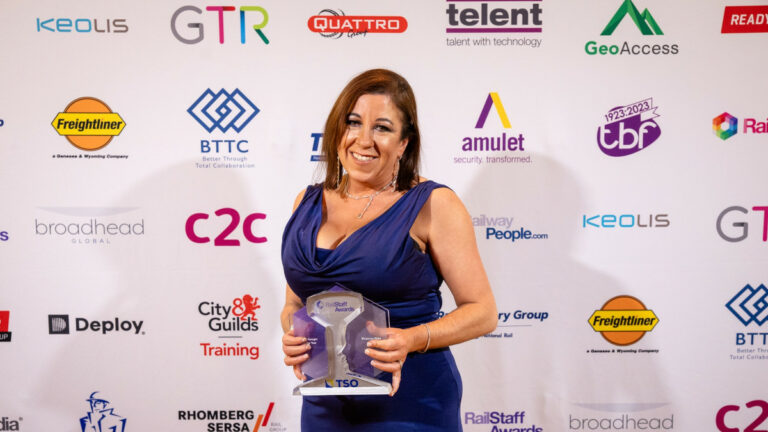The rail industry is always moving forward, employing groundbreaking ideas and technology to help the network run more efficiently, cleanly, and safely. We take a look at some of the latest developments.
GB Railfreight successfully trials new brake monitoring system
In late October, GB Railfreight (GBRf) announced a successful four-week test of an innovative new solution for monitoring wheel and brake issues. Developed in collaboration with Icomera, DG8 and SENSEi, this world-first system enables battery-powered sensors to remotely share status and out-of-tolerance alerts with drivers and operational control centres, whilst they perform vehicle pre-checks.
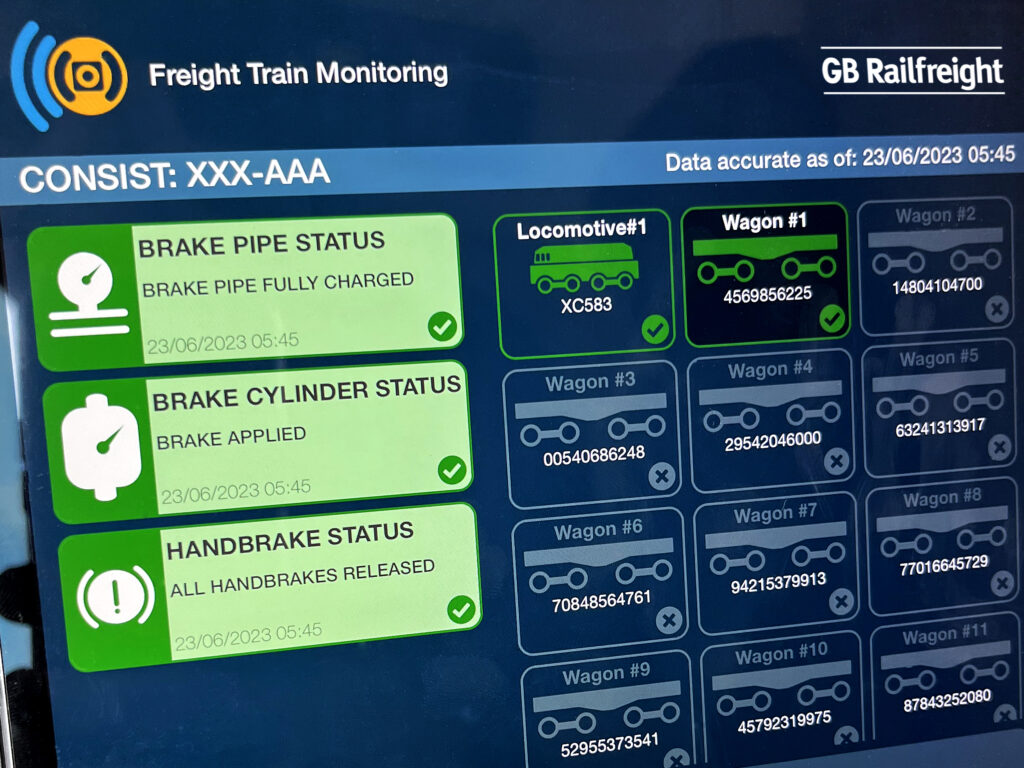
This Internet of Things (IoT) technology can help to create a safer and more efficient rail network by reducing the number of incidents relating to wheel and brake faults. No known method has previously existed for delivering freight wagon brake sensor data to the driver in the locomotive wirelessly, via a closed system. When using the system, train drivers receive sensor data directly to an application on a tablet in their cabin. This allows them to take immediate action to mitigate against potential wheel or brake-related risk factors as well as respond to real-time feedback on the results of their actions.
Following this successful test, the next set of solutions are currently being developed with further trials being scheduled.
David Golding, asset director at GB Railfreight, said: “Working with our trusted industry partners, we have proven the concept of a first-of-its-kind application in the rail sector. GBRf is really proud to be leading the freight industry by developing these innovative solutions to reduce incidents relating to wheel and brake issues.”
Peter Kingsland, SVP, Icomera UK, added: “Rail freight operators are rightly paving the way for digitally driven solutions to mitigate risks as the freight industry grows. Connecting drivers and the engineering teams that support them to real-time trainborne sensor data is a natural step towards a safer and more efficient rail network for all users.”
Digital missing person appeals will bring people to safety faster
A new project has been launched in an effort to bring more missing people to safety faster, using geo-targeted urgent and current missing person appeals through a partnership between Missing People and Trainline.
The pioneering new initiative, the first of its kind in the UK, will bring location-based appeals to millions of train travellers across the country via the Trainline app. It works by displaying images of people who have gone missing in the vicinity, as well as information on what to do if the user suspects they have seen a missing person, or have information on their whereabouts.
The trial for the initiative launches today and has been supported by relatives who are continuing to search for missing family members, including the father of Andrew Gosden. Andrew went missing on the 14 September 2007 after taking a train from his hometown of Doncaster to King’s Cross station in London when he was just 14 years old.
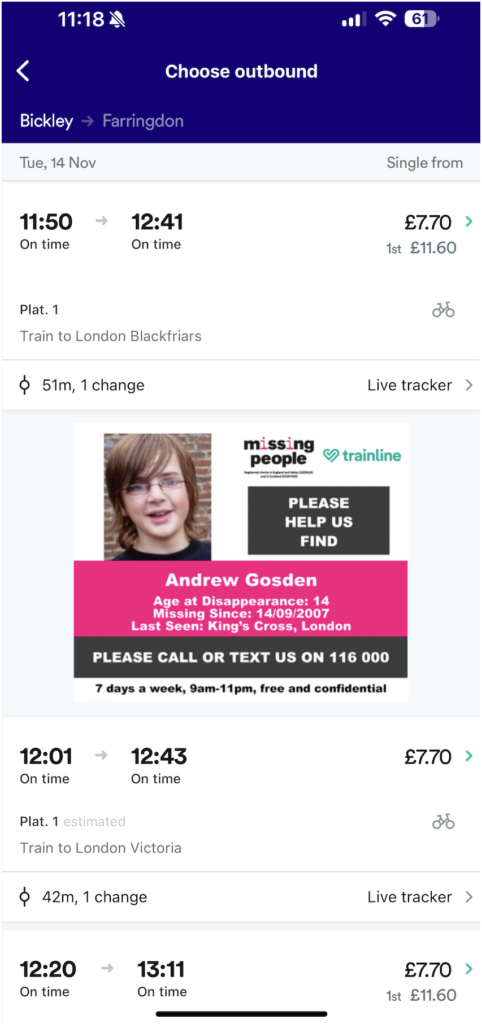
Speaking about the project, Andrew’s father Kevin Gosden said: “It’s so important to have these appeals out there. You never know when someone might remember something, or may have seen a missing person. It’s also important to know that there is help for anyone considering disappearing, including support that may help people take the step to return home, or think twice before leaving in the first place.”
“If this had existed back in 2007, Andrew’s image could have been displayed to thousands of members of the public in the area where he went missing. Anything that can help to raise awareness of Andrew, and the appeals for any missing person, is vital in keeping the search active and ensuring people are continuing to keep a look out for those who are missing”.
Paul Joseph, head of helplines at Missing People said: “Someone going missing is a crisis. The main factors for adults are mental health problems and financial uncertainty. Missing People is concerned about the effect of the growing pressures on people over this winter. The charity is gearing up to take more contacts to our Helpline.
When someone vulnerable has disappeared, they can often use the transport network as a safe place. Missing People is so proud to be working with Trainline to raise awareness of individual disappearances. Together, we hope to raise awareness and potentially help find missing people. For the loved ones of those featured, knowing that action is being taken to find them, helps to keep hope alive.”
John Davies, vice-president of Industry Relations for Trainline, said: “We want to do our bit to help Missing People’s important work. With millions of people using the Trainline app each year our tech provides an effective new way to reach travellers and boost awareness of their appeals.”
The project went live on 15 November and will be trialled for an initial one-year period. This is supported by JC Decaux through the use of their billboards in main train stations across the UK – which will also show the appeals. Participating stations include Charing Cross, Cannon Street, Manchester Piccadilly, Liverpool Lime Street, Leeds, Clapham Junction, Edinburgh Waverley, Birmingham New Street and London Bridge.
Government invests in innovative accessibility projects
AI technology could soon see live staff announcements across train tickers to ensure passengers hard of hearing don’t miss vital updates, thanks to a Government funding competition announced on 23 November.
This is just one of the 17 projects – six of which are focused on accessibility – being announced as part of the ‘2023 First of a Kind’ competition.
Run in conjunction with Innovate UK, other accessibility projects set to share the £5.3 million of funding offered by the Government include:
- Strategically placed QR codes around stations which allow train managers to directly input important information on platform changes and service alterations as well as acting as a database for accessible information, ensuring passengers have all the information they need.
- An online journey planner providing up-to-date information on key facilities such as where accessible toilets are in stations and trains throughout their journey and whether they’re open and in use, giving passengers more confidence when planning journeys.
- Installing kiosk systems on platforms – similar to pressing a button on a bus to let the driver know to stop – in rural areas where passengers currently have to physically flag down trains which can cause difficulties for those with mobility needs.
This is the seventh round of First of a Kind funding, which aims to develop new and innovative technology to drive efficiency, modernise our current infrastructure, and make using our railways a better experience for passengers. The funding will support the projects through their development phases involving real trials on the railways in the coming months and giving them a better chance of being used across the network long term.
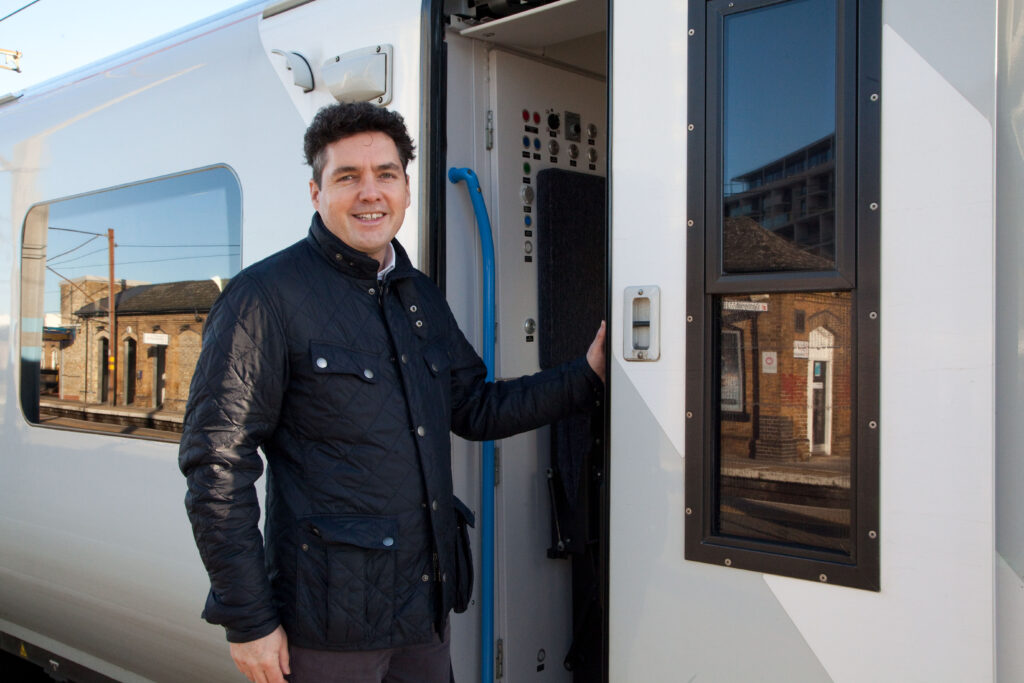
Rail Minister Huw Merriman (pictured below) said: “We’re spending more than £5 million on modernising train journeys, improving the experience for some of the most vulnerable passengers and using cutting edge technology to do so.
“The projects announced today have the potential to make a huge difference to passengers, whether that’s being able to read important announcements or locate accessible facilities. I’m proud of the support we’ve been able to show through this competition to drive towards a more innovative, inclusive and better value for money rail network.”
Other winning projects this year include a sensor to detect when there’s leaves on the line – a problem which causes delays across the network, DreamSuite, a new design for UK Sleeper Services, and new technology that will allow train timetables to rapidly update during extreme weather events so people are kept up to date.
Over the past six years, more than £50 million of funding has been awarded to 150 projects as part of the competition, helping a number of innovative technologies reach the market including, ‘Seat Frog’, which allows passengers to swap train tickets without having to purchase a new one, a train-mounted camera able to identify and address lineside maintenance issues, and Transreport’s technology enabling passengers with disabilities to request assistance more easily.
Anthony Smith, chief executive of independent watchdog Transport Focus, said: “This new investment in accessibility improvements is a welcome move to help rail passengers with disabilities travel freely and with greater confidence.
“It is important that people with disabilities have full access to trains and station facilities. Improving information and new innovative solutions will help staff give all passengers the support they need.”
Mike Biddle, executive director for net zero at Innovate UK, added: “The innovations receiving support through this competition are set to foster a more accessible, inclusive railway system within the UK and to develop demonstrators that offer innovations in customer experience, reliable and maintainable assets and optimised train operations.
“The objective is to endorse a wider array of innovations that focus on enhancing railway accessibility for all passengers, ensuring a more equitable travel experience while creating easy to maintain assets and optimising train operations.”
As part of the Network North plan, the Government has set aside a further £350 million to improve accessibility at up to 100 stations, meaning stations will be able to benefit from refitted lifts, tactile surfaces, ramps and footbridges, new ticket gates, and accessible waiting rooms and toilets.
Mobile rail charging facility to be demonstrated at Long Marston
New technology developed by Siemens Mobility that makes battery charging and 25kV power supply possible in areas of the UK railway where overhead line equipment is not currently available is to be installed at Porterbrook’s Long Marston Rail Innovation Centre.
Siemens Mobility’s Rail Charging Converter (RCC) has been supported by Department for Transport through Innovate UK’s First of a Kind programme. It is a mobile rail charging facility that can go anywhere and boost weak electricity networks to deliver the 25kV supply needed for battery traction.
Porterbrook’s Long Marston Rail Innovation Centre in Warwickshire comprises 20km of track for railway testing, engineering, and storage.
As part of the agreement, Siemens Mobility and Porterbrook will contribute to the funding of the RCC demonstrator, which will play a key part in the comprehensive track and power upgrades being undertaken at the site to enhance its long-term testing capabilities.
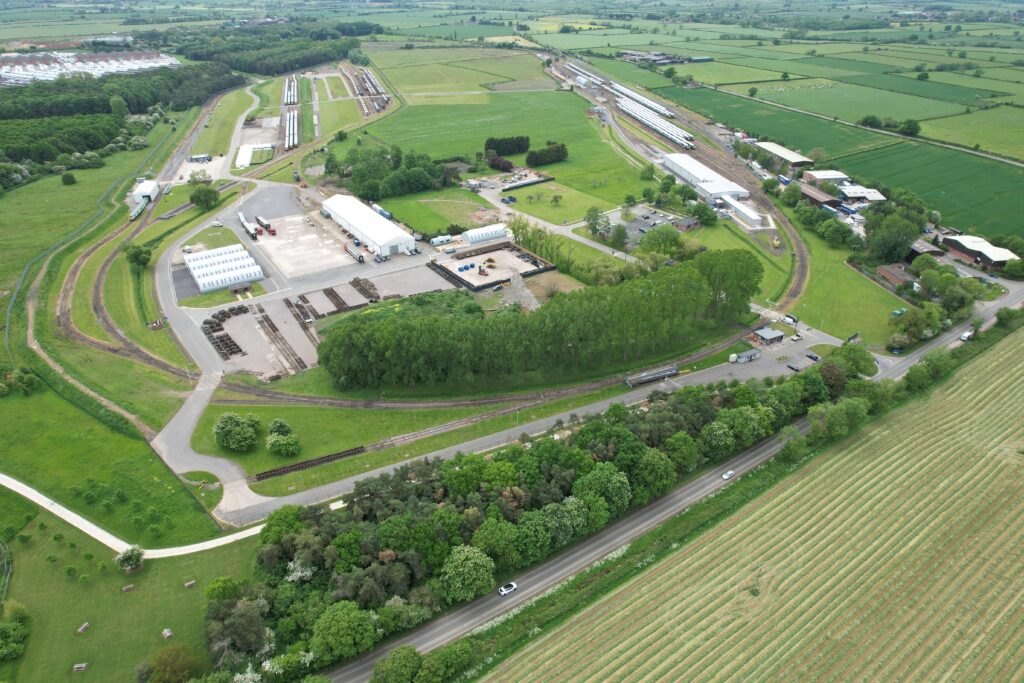
Rob Morris, joint CEO at Siemens Mobility said: “This is a great opportunity for the UK rail network. We all know rail is the greenest form of transport. Our Rail Charging Converter, delivered here in the UK, can help transform journeys for passengers by supporting trains to use clean power in the form of battery or electric.”
Ben Ackroyd, chief operating officer at Porterbrook said: “Long Marston Rail Innovation Centre is the perfect site for Siemens Mobility to pilot and develop this innovative technology, which will provide a permanent traction power solution to the site. We’re delighted to support Siemens Mobility with this project, which can help the UK railway to extend cleaner battery EMU operation across the network.”
The team will install a novel charging solution which was designed to enable charging of trains with batteries, fed from existing standard local power supply cables.
The modular and containerised system uses power electronics to provide a fully compliant, standard connection between modern three wire electricity grid and the single wire railway.
The converter essentially reduces the electrification infrastructure needed by being able to plug into existing power cables and deliver the ideal power supply for trains.
Compatible with all overhead line equipment powered trains, the small, low-cost design enables the removal of diesel passenger train operation on routes without continuous electrification.



